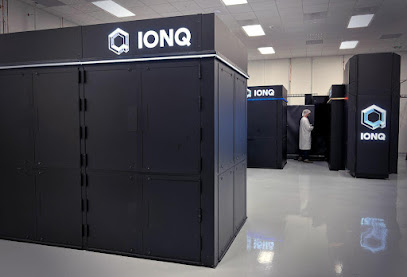Investment & Business Report: IonQ, Inc. (NYSE: IONQ)
UpDate: May 18, 2025
Executive Summary
IonQ is a leader in trapped-ion quantum computing and is increasingly seen as a foundational pillar in the development of a global quantum internet. Backed by a scalable technology roadmap, deep partnerships with cloud and government agencies, and strategic acquisitions, IonQ is uniquely positioned for long-term growth in both standalone quantum computing and quantum networking.
1. Company Overview
Founded: 2015
Headquarters: College Park, Maryland, USA
Technology: Trapped-ion quantum computing
Market Cap: Approx. $6.8 billion (as of May 2025)
Employees: ~250
2. Technology and Innovations
Trapped-Ion Architecture
IonQ uses individually controlled ions trapped in electromagnetic fields. These qubits exhibit:
Long coherence times
High-fidelity quantum gates
Superior error correction potential
Modular Systems
Forte and Aria are rack-mounted, scalable quantum systems.
Forte Enterprise is designed for network deployment, positioning IonQ for distributed computing and early quantum internet integration.
Quantum Networking
Focused on photon-based entanglement for long-distance qubit connectivity.
R&D includes quantum repeaters and error-protected interconnects.
Recent acquisition of Qubitekk enhances IonQ’s ability to develop entangled quantum networks. Qubitekk’s work on the EPB Quantum Network—the first commercially available quantum network in the U.S.—adds practical and deployable IP.
3. Strategic Partnerships and Acquisitions
Key Partnerships:
Amazon Web Services (AWS) – IonQ systems accessible via Braket
Microsoft Azure Quantum, Google Cloud – Cloud-based availability
U.S. Department of Energy (DOE) and DARPA – Funded projects in quantum networking
Notable Acquisitions:
ID Quantique (2024) – Leader in quantum key distribution (QKD), enhancing IonQ’s quantum communication capabilities
Qubitekk (2025) – Pioneer in quantum networking hardware and software, with over 100 patents. Qubitekk’s team and technologies are now part of IonQ, fast-tracking the company’s networking and entanglement roadmap.
4. Financials (Q1 2025)
Revenue: $21.4 million (YoY growth of 105%)
2025 Full-Year Revenue Guidance: $85.4 million
Cash Position: ~$450 million
EBITDA: -$39 million (expected to improve with enterprise sales)
R&D Spend: $80M/year (focused on scale and networking)
5. Market Opportunity
Quantum Computing TAM:
Estimated to exceed $65B by 2035
Applications: Pharma, finance, logistics, materials, aerospace
Quantum Internet:
Projected to be a $100B+ market by 2040
Applications: Unhackable communication, distributed computing, secure financial networks
IonQ is among the only public companies actively developing quantum networking hardware and protocols.
6. Investment Thesis
Strengths:
First-mover advantage in trapped-ion hardware
Exclusive access via major cloud platforms
Strong government and enterprise backing
IP moat via ID Quantique, Qubitekk, and internal R&D
Scalable architecture suited for quantum internet nodes
Risks:
Capital burn still high
Quantum networking standards still in development
Competition from private giants (e.g., Quantinuum, PsiQuantum)
7. Analyst Sentiment
Average Price Target (2025): $40
Consensus: Buy
Bull Case: IonQ leads quantum internet build-out, captures government & defense network deals
Bear Case: Slower-than-expected commercialization; rising competition
8. Conclusion
IonQ is not only a premier quantum computing stock but also a potential linchpin of the future quantum internet.
Its blend of scalable hardware, photon-based communication R&D, strategic acquisitions like Qubitekk and ID Quantique, and integration with global cloud services positions it as a unique long-term investment in deep tech and next-gen networking.
Investment Rating: Overweight (Long-Term Growth-Oriented)





